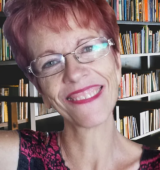Dissociative Disorders therapists in Columbia, South Carolina SC
We are proud to feature top rated Dissociative Disorders therapists in Columbia, SC. We encourage you to review each profile to find your best match.
Therapy Solutions, LLC
Psychologist
Dr. Sanness has training and expertise in complex trauma and dissociation. She works with individuals with PTSD, and comorbid dissociative disorders. Dr. Sanness uses a stage-approach to trauma treatment and teaches practical skills to help cope with dissociation such as grounding, containment, etc.
22 Years Experience
Online in Columbia, South Carolina
Dr. Amanda Roberts
Psychologist, PhD Clinical Psychology, Masters in Marriage Family Therapy
There are few clinicians skilled in the treatment of these complex disorders. Dr Roberts has many years of experience working with the traumatic fallout of complex trauma. He has specialist training in dissociative identity disorder and structural dissociation.
39 Years Experience
Online in Columbia, South Carolina (Online Only)
Allen Wood
Psychologist, Psy.D.
Dissociation often goes hand-in-hand with stress, trauma, and other forms of emotional overwhelm. While the spectrum of dissociation ranges from zoning out to complete shut-down, it can create invisible barriers between you and your goals. If you're feeling stuck, confused about why your best efforts in life aren't as satisfying, or have tried therapy without success then don't hesitate to reach out. In working together, we would use EMDR and Internal Family Systems interventions to identify the areas where you're finding those barriers and build the resources, skills, and regulation to be able to achieve those goals without losing yourself along the way.
6 Years Experience
Online in Columbia, South Carolina (Online Only)
Dr. Alan Ickowitz
Psychologist, Psy.D.
I have helped clients cope with and heal from trauma resulting in dissociative disorders for more than 15 years.
33 Years Experience
Online in Columbia, South Carolina
Nancy Hayes-Gary, Psy.D.
Psychologist, Licensed Psychologist, MD , Psy.D.
Grounding, soothing, and leaning to separate out past trauma from present reality helps decrease dissociation. I also approach this with some of the approaches I’ve already mentioned. People who dissociate are often plagued with past thoughts or memories of a very difficult time. Exploring childhood patterns of family interactions gives one a key to understanding their dissociation as a trauma response. Also essential is the learning of other trauma responses that don’t come with the down sides of dissociating, like memory problems or depersonalization/derealization anxiety.
31 Years Experience
Online in Columbia, South Carolina (Online Only)




